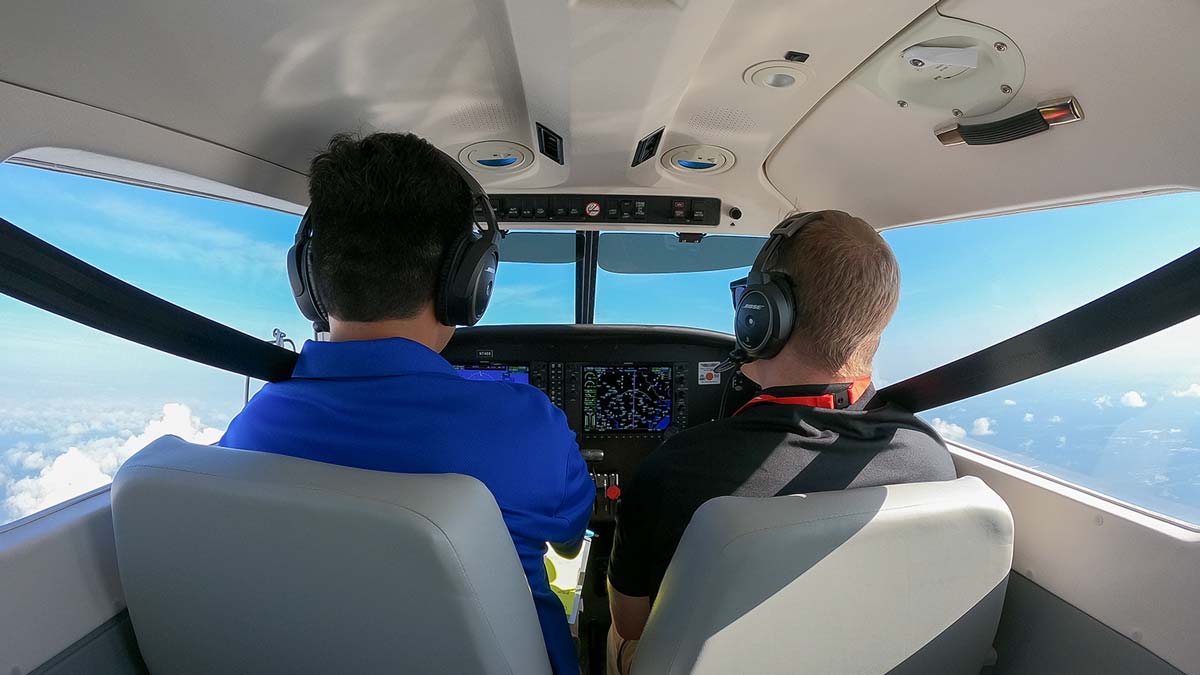Ask any child what they want to be when they’re old enough The word “pilot” is always on the list. It’s a career wrapped in adventure, technical precision, and freedom. But once the dream meets reality, all aspiring pilots ask the following: What does a pilot actually get paid and is it worth the money?
It’s not as easy as just the simple calculation of. Understanding the pay of airline pilots today requires navigating initial salaries, growth rates and structure of benefits.

Image credit: flightschoolusa.com
Start Small: Why many pilots get started in the region world
Most pilots don’t start their careers in the cockpits of Boeing 787. Their careers often begin with regional carriers in which they operate smaller aircraft on shorter distances. These positions are the training ground for captains to come, and their pay reflects this.
A regional airline pilot salary typically starts around $45,000 to $70,000, depending on the airline and whether the pilot comes with flight experience or is fresh out of school. Although it could seem low when compared to the cost for flight school, having regional experience can result in greater opportunities. Many regional airlines are increasing their salaries quickly due to the lack of pilots.
Commercial Pilot Salary The Salary of Commercial Pilots isn’t always what you Think
Then things start to get interesting. Commercial pilot certification doesn’t necessarily mean that you’re flying with a major airline. This means that you are entitled to receive compensation from an airline for your flights. This can be done in charters, cargo sightseeing, sightseeing, firefighting, dusting of crops, or even corporate jets. Each of these avenues offer radically different compensation packages.
A charter pilot could make $60,000. In contrast, a Gulfstream G650 Corporate Captain may earn as much as $200,000. Commercial pilot salaries are so different due to the broad variety of roles and the risks. In contrast to the formal seniority system of airlines, commercial sector tend to base pay on negotiation types of aircrafts, the type of aircraft used, and client contracts.
The numbers begin to get large
Pay scales for pilots USA for those who progress through the ranks and become a part of an airline that is major it becomes much more appealing. A first officer with an important U.S. airline could earn between $90,000.00 to $150,000.00 for a pilot, whereas a senior pilot flying international wide body routes could make up to $400,000.00 or higher, due to bonuses and overtime.
These figures do not tell the entire story. The aging process can be accompanied by busy schedules as well as long-distance fatigue, and lifestyle compromises. It’s an enjoyable career, but not always a glamorous one.
What Paychecks Don’t Show
Benefits are a key component of any discussion about salary of airline pilots. Many pilots place value in these benefits that go beyond the amount. Benefits can significantly impact the quality of life for all. They include health insurance, pension plans, and access to travel benefits extended to family members.
Plus, many airlines now offer signing bonuses (sometimes $15,000 to $75,000) for experienced pilots, especially those with military experience or type ratings that are in high demand. These bonuses are a reflection of the demand for highly qualified professionals within the U.S., as the population of pilots is declining and demand for flights is growing.
Do You Really Get Value?
It’s not just expensive, but also demanding to become a pilot in America. Flight school costs anywhere between $70,000 and $150,000. Pilots rarely see six-figure salaries until they’re several years into their careers. The long-term benefits are real.
Pilots typically enjoy stability in their jobs as well as structured advancement as well as the kind of scheduling flexibility that many other professions envy. The perspective from the cockpit as well as the joy of flying a plane is more important to many people than the pay.
Final Thoughts
The salary of a pilot in America isn’t just about figures, but more about the experience, growth and lifestyle. An aviation career offers more than just a salary to those who are eager to fly and are willing and able to put the time and effort into it. It is possible to choose between regional or commercial jobs. Each step will bring you better earnings and an expanded horizon.
